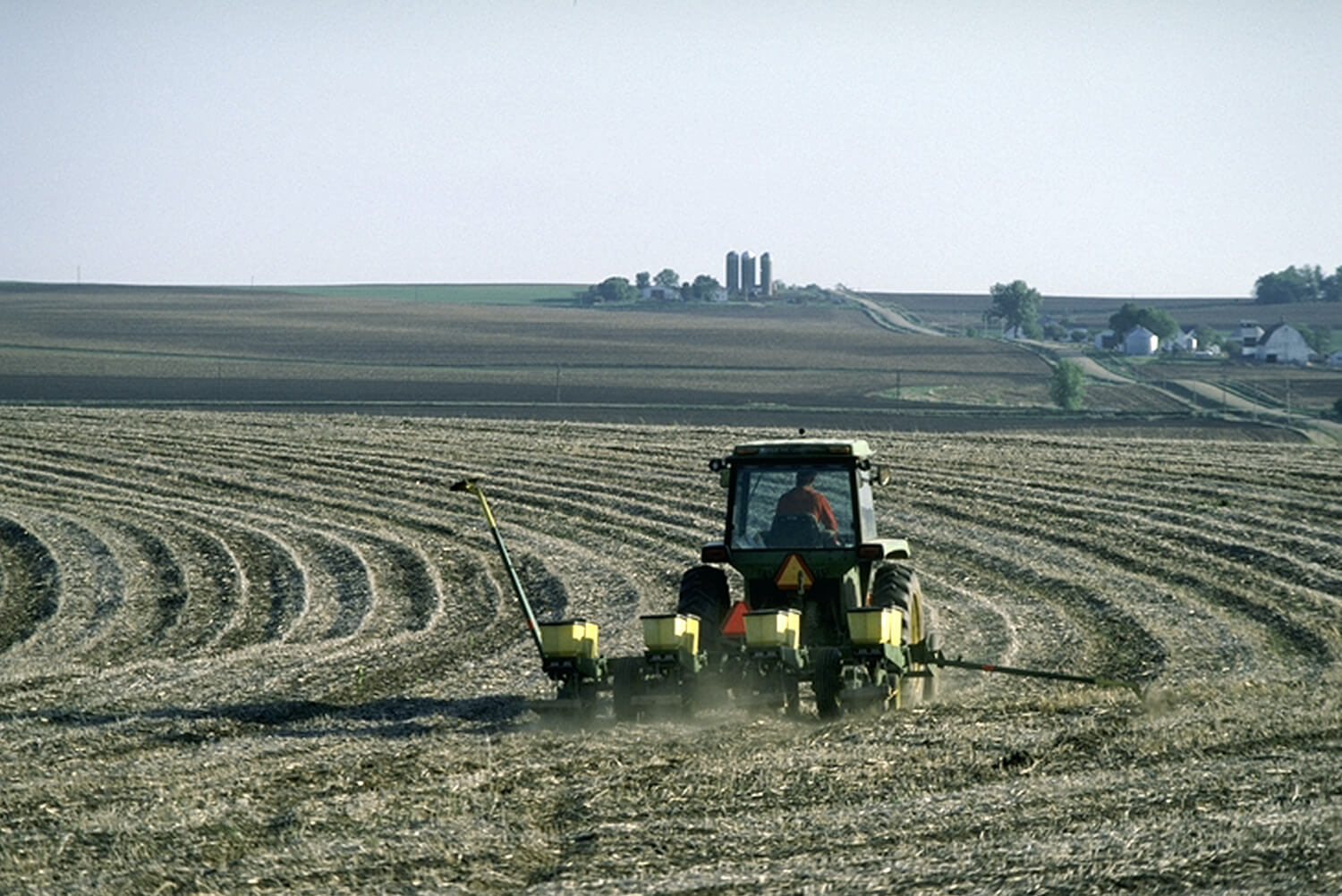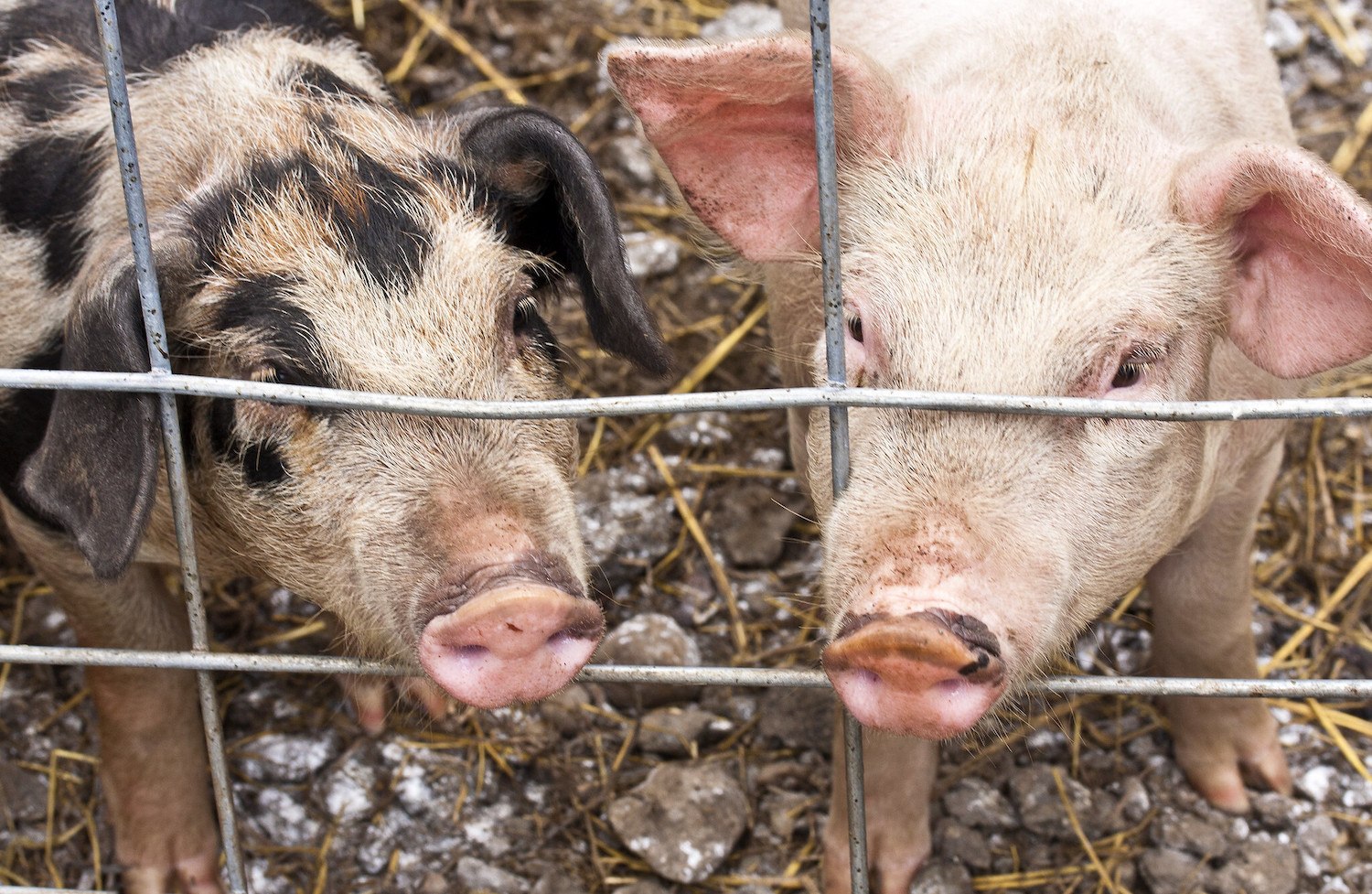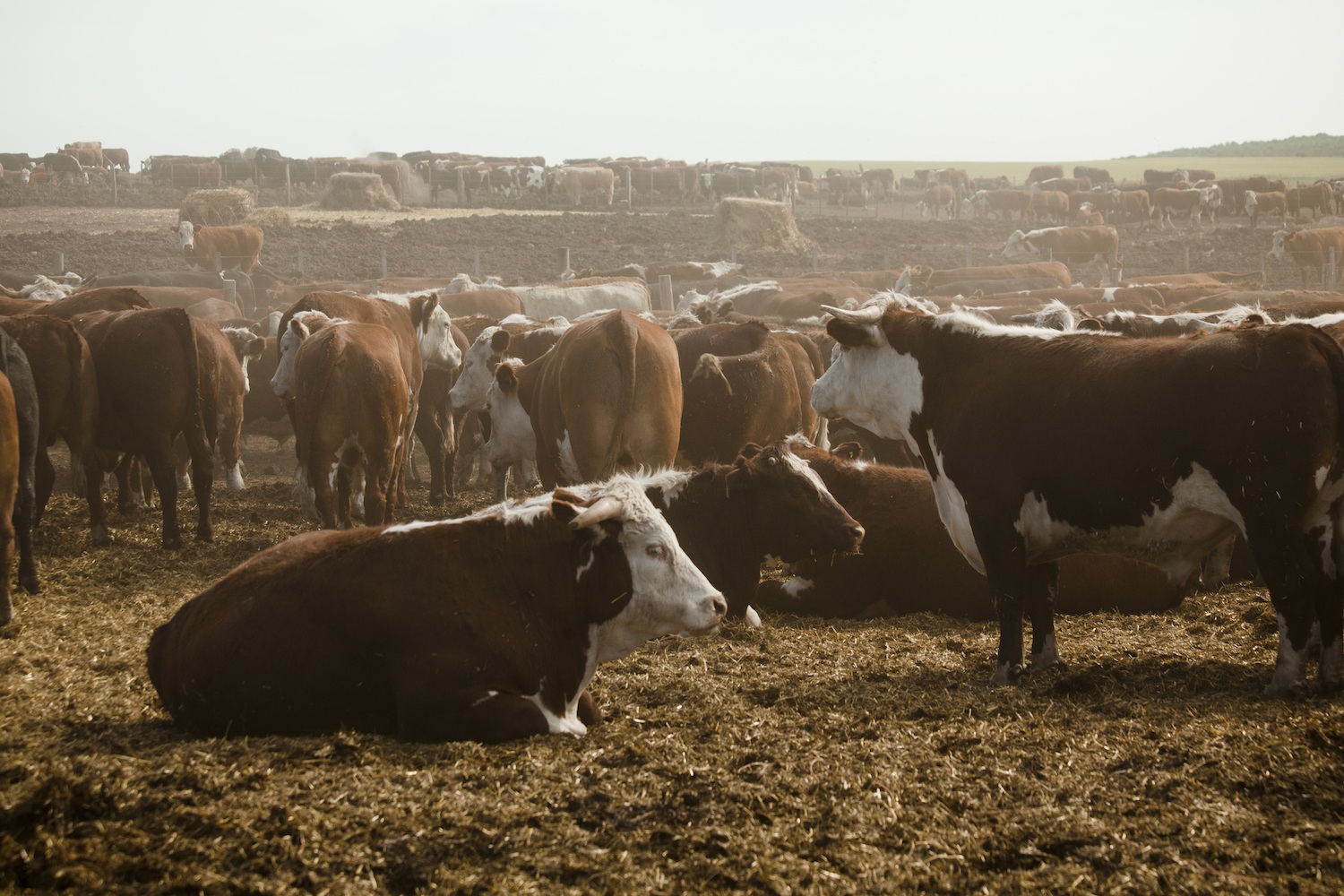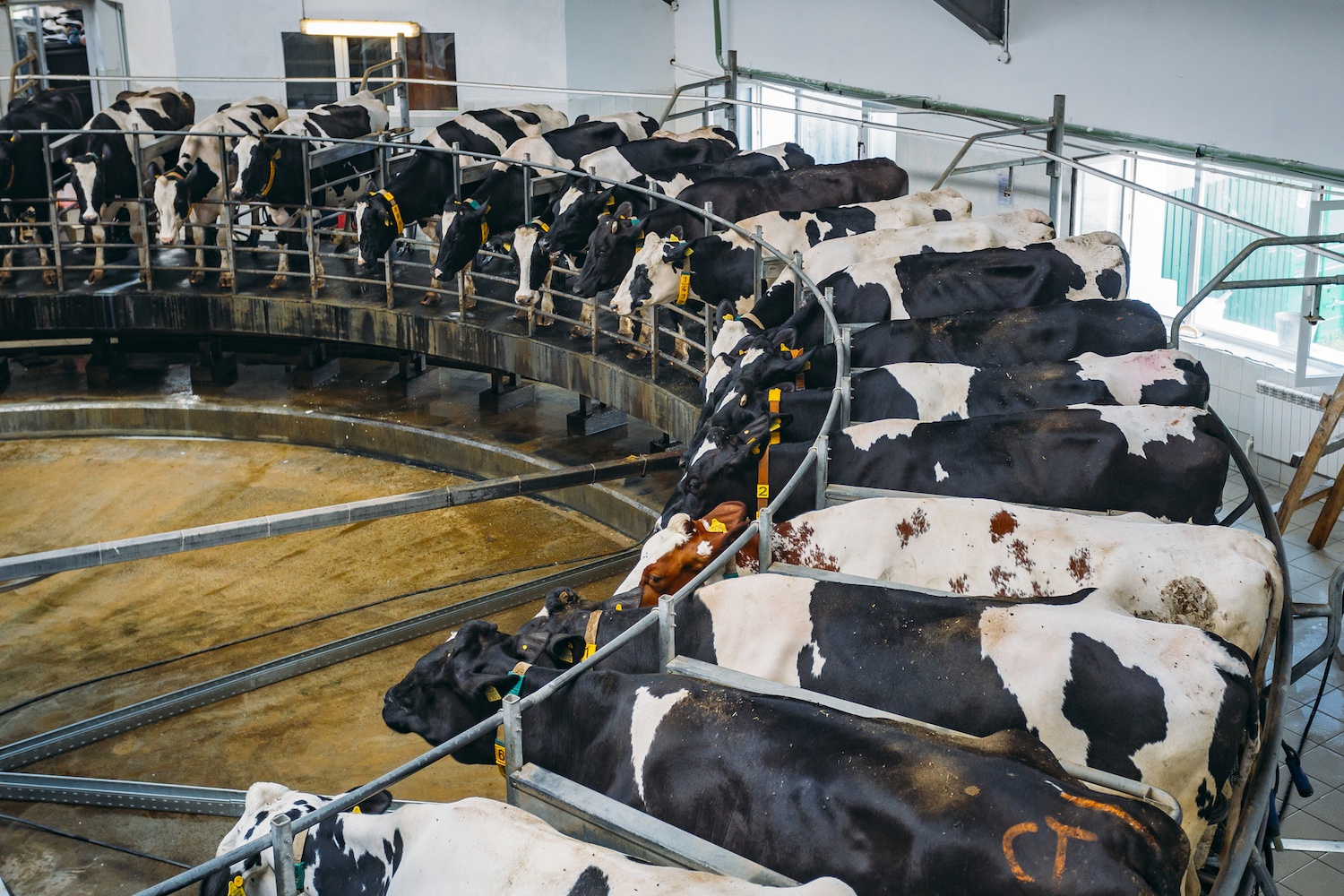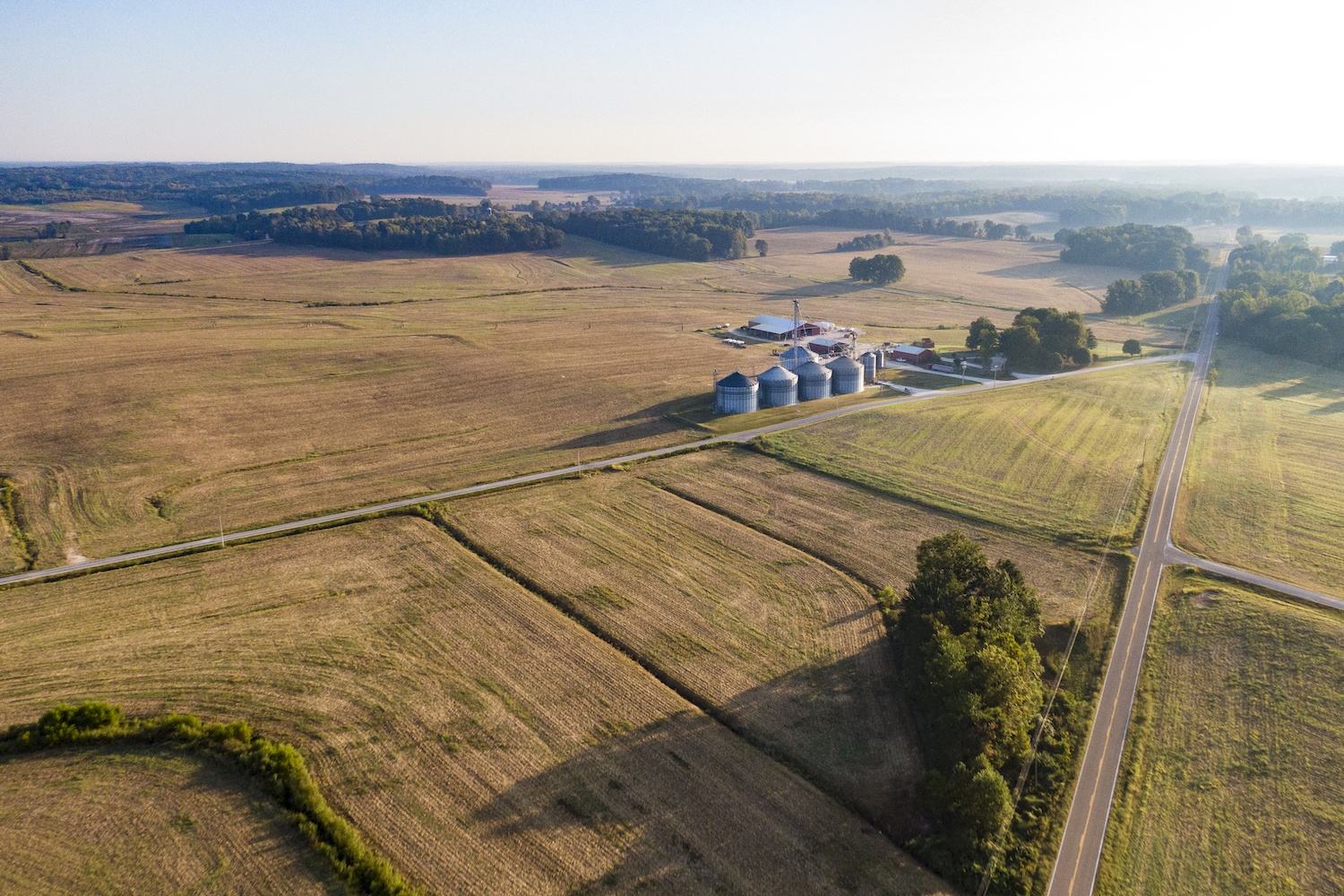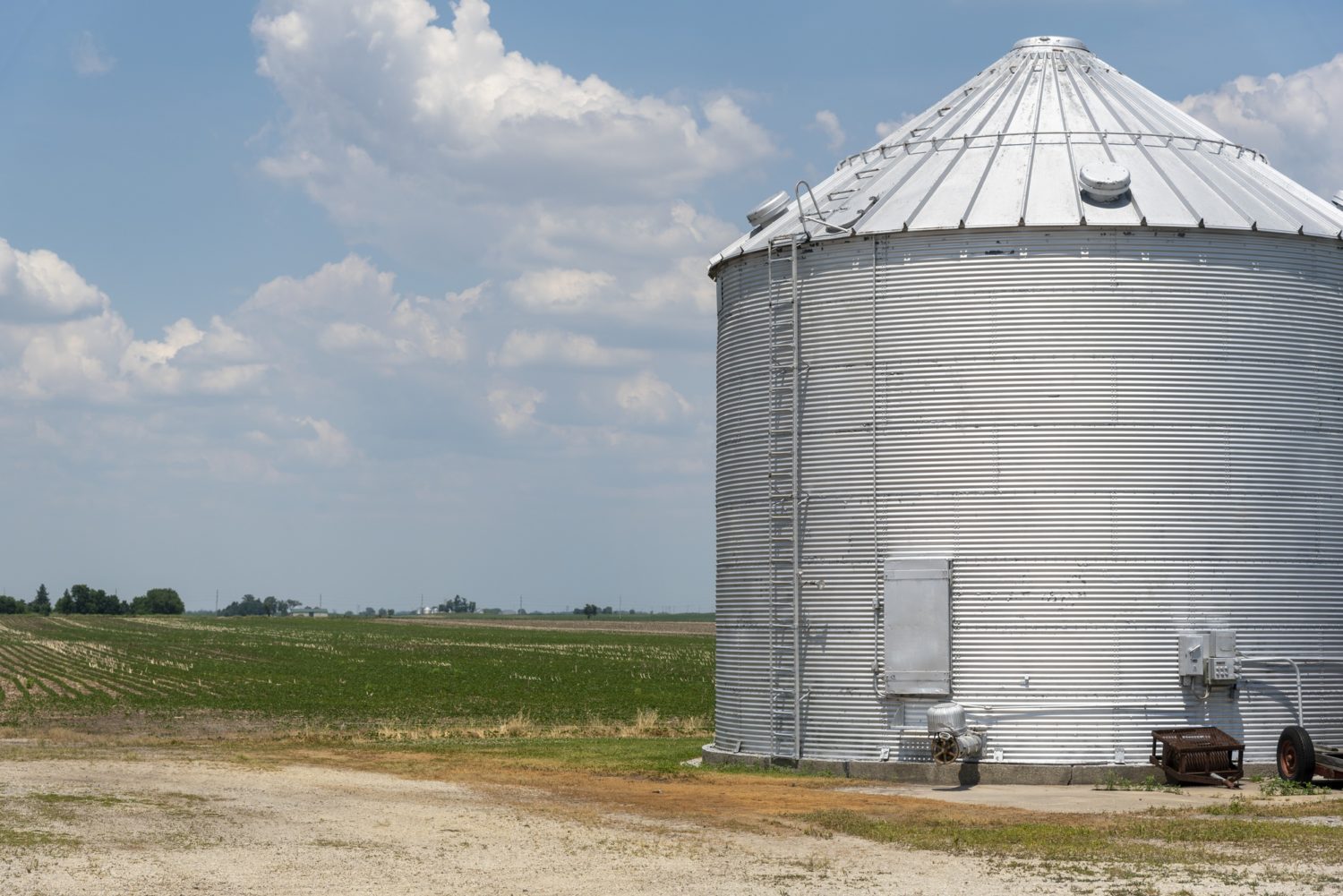
Darrell Hoemann/The Midwest Center for Investigative Reporting
Dumping milk, euthanizing healthy pigs, and other coronavirus fallout is taking a toll on an already-grueling profession.
This story is part of a yearlong project exploring the ways farmers and farming communities tackle mental health and is supported with a grant from the Solutions Journalism Network.
This article is republished from The Midwest Center for Investigative Reporting. Read the original article here.
Meg Moynihan knows what it’s like to struggle.
In 2016 she and her husband, who own an organic dairy farm in Minnesota, found themselves without a processor, which turns farm milk into a consumer product. Their farm was too far a drive for too little milk, they were told. They didn’t find another processor for eight months.
Without a processor, Moynihan said they had to dump their milk. She took a leave of absence from her job with the Minnesota Department of Agriculture so she could work full-time on the farm. Her husband picked up truck driving to keep them afloat.
She said her experience is what made her decide to start the department’s Farm & Rural Helpline. Although her farm isn’t currently struggling, she said her personal experience makes her empathetic to farmers experiencing stress during the Covid-19 pandemic.
“In the past, dairy would be really down, but beef might be up and hogs might be up and corn and soybeans fluctuate back and forth. Every phase of farming is really down now.”
“The feeling of opening a tank of fresh cold, pure Grade A milk and just watching it run out the door, now it almost makes me choke up. And that’s just dumping milk,” she said. “That’s not going out and looking at a barn full of animals that I’ve raised and realizing that they have to be destroyed because they can’t go to a processor.”
Farmers faced high levels of stress before the pandemic. A January Centers for Disease Control and Prevention study found farmers were among the most likely to die by suicide.
But the virus’s impact on agriculture has only deepened some farmers’ stress, experts said. What’s different this time is that every phase of farming is struggling now—money is tighter and more food is wasted, said Ted Matthews, a Minnesota psychologist who has focused on farmer stress since 1993.
“It’s the worst I’ve ever seen,” he said. “In the past, dairy would be really down, but beef might be up and hogs might be up and corn and soybeans fluctuate back and forth. Every phase of farming is really down (now).”
“People don’t realize what it’s like to kill healthy pigs just because there’s no place to send them because Covid-19 closed those plants. The high stress of that is just scary.”
The virus has disrupted how farmers get their products to consumers. A survey by the Ohio Farm Bureau in April showed that 45% of its respondents had their distribution process disrupted, and about 65% said the pandemic had negatively or very negatively affected them.
Some data suggests more farmers are trying to find resources to manage their stress.
Farm Aid received two-to-three times as many calls and emails in April—as the pandemic in the United States geared up—than in an average month, according to the organization.
The “Stress & Crisis—get help now” page on the Minnesota agriculture department’s website devoted to farmers’ stress saw an average of about 153 visits a month in 2019, according to data the department shared. Through the first five months of 2020, the average monthly number of visits is about 212.
“Farmers by nature just want to fix things and make them better and find ways around the problems.”
Matthews said that stress for farmers during the pandemic extends beyond the economy. He expects a lot of farmers to experience PTSD from having to kill off so many of their animals.
“People don’t realize what it’s like for these companies to kill healthy pigs just because there’s no place to send them because Covid-19 closed those plants,” he said. “The high stress of that is just scary.”
The pandemic is also creating family strain, Matthews said, adding that, anecdotally, he’s starting to see an increase in domestic abuse and divorce.
“When you’re losing money,” he said, “you tend to blame the people closest to you.”
While things have started to get a little better as states start to reopen, it’s going to take time to return to normal, said Ty Higgins, director of media relations at Ohio Farm Bureau.
“Farmers by nature just want to fix things and make them better and find ways around the problems,” he said. “But you can’t control the weather. You can’t control the markets.”
“There’s help out there”
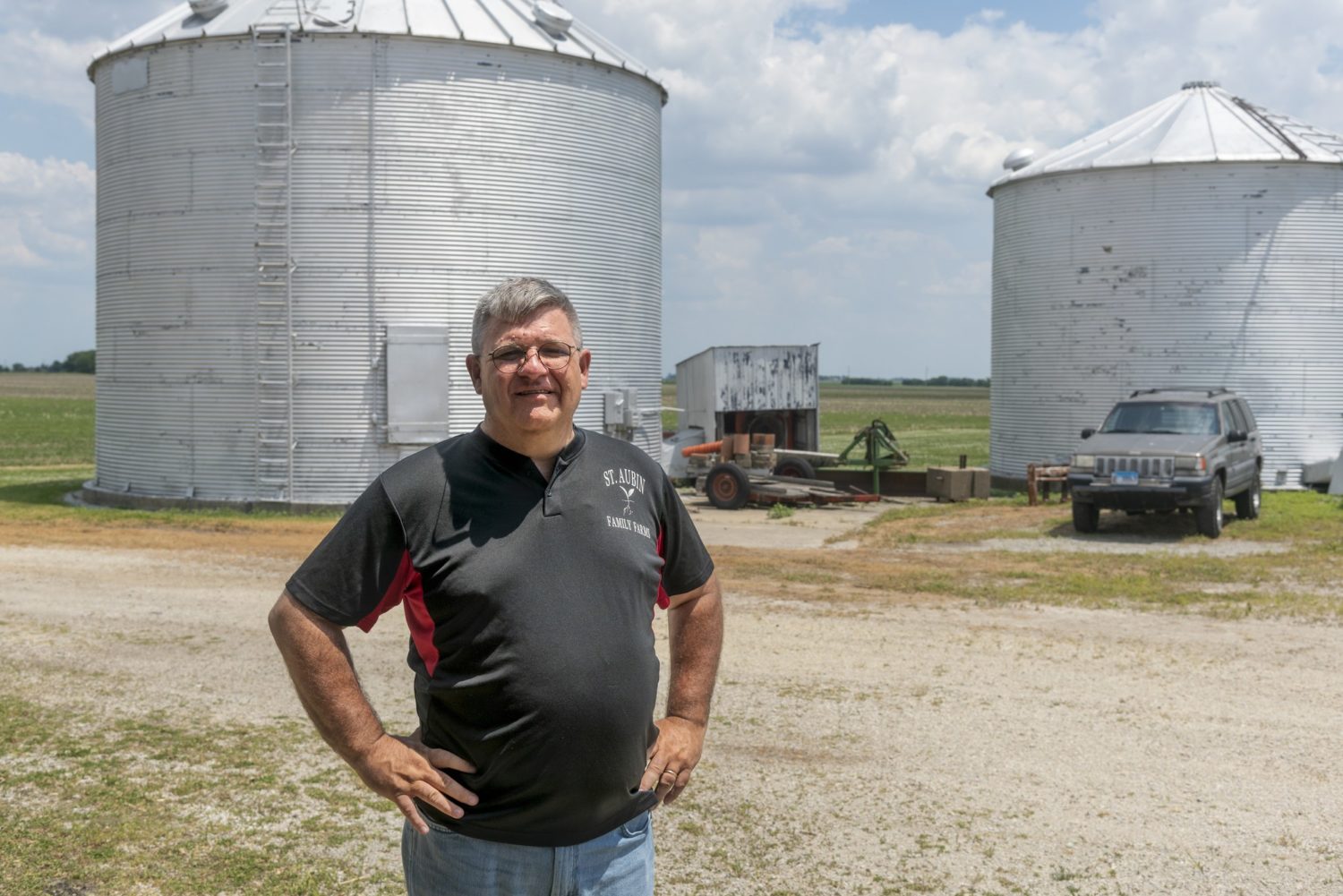
Greg St. Albin at his farm near Manteno, Il on Friday, June 19, 2020.
Darrell Hoemann/The Midwest Center for Investigative Reporting
Greg St. Aubin, owner of St. Aubin Family Farms in Manteno, Illinois, said he can understand how the pandemic may be a breaking point for many farmers struggling with mental health. He knows that because he’s been there.
In the early 2000s, St. Aubin took over his father’s farm. Even though he grew up on a farm, he didn’t understand what it took to manage one.
He said he went through about six months of extreme anxiety, depression and even thoughts of suicide until he eventually decided he needed professional help.
He’d struggled with mental health all his life but just figured that’s who he was. But he didn’t have to live that way, his psychiatrist helped him realize.
The grain farmer has since learned how to handle his anxiety. He said that while he certainly had some fears when the pandemic hit, he was still able to get through planting season. But he knows that may not be the case for every farmer.
“This should not be looked at as being something that is impossible and that you have to live with the rest of your life. There’s help out there.”
“I would venture a guess there’s more than one farmer that this was their fall-off-a-cliff moment,” St. Aubin said.
Because he grew up near Manteno State Hospital, St. Aubin said he always thought there was a stigma associated with mental health. Even after he received help for his own depression, he was reluctant to talk about his experience.
But after realizing how many farmers are going through the same problems, he has since become an advocate for breaking the stigma. He’s even shared his own experience on social media.
“I realized going to (a therapist) was no different than going to a doctor because I had diabetes or I had heart disease,” he said. “This should not be looked at as being something that is impossible and that you have to live with the rest of your life. There’s help out there.”

Greg St. Albin, smiling above, now shares his mental health experiences with other farmers.
Darrell Hoemann/The Midwest Center for Investigative Reporting
Matthews said it’s important for farmers to focus on things they can do, rather than stress about the things out of their control.
“The thing that people always need to understand is, I can handle X amount, but I don’t know how much that is until I get to the breaking point,” he said. “With a lot of farmers, this is putting them to that breaking point.”
Farm Aid announced on June 16 that they are disbursing $400,000 for their Farmer Resilience Initiative, which intends to help farmers struggling during the pandemic. The $500 grants will help farmers with household expenses, according to the release.
A group of U.S. senators last week also introduced a bill that aims to extend telehealth services to rural communities with $10 million in annual grants through 2025.
“We’re having more open dialogue about something that has been so taboo in agriculture for years, and I think that is a big step in the right direction.”
“It’s important that they get the services they need during this uncertain time,” Sen. Tina Smith, D-Minn., said in a statement.
“Open dialogue”
Higgins said that because of outreach efforts all across the U.S., there is more discussion about mental health in the agriculture community. He said that there are now several podcasts offered, like TransFARMation and Ag State of Mind, and Facebook groups for farmers.
“We’re having more open dialogue about something that has been so taboo in agriculture for years, and I think that is a big step in the right direction,” he said.
Jim Birge, with the Sangamon County Farm Bureau in Illinois, said the state’s farm bureau has tried to get the word out about mental health and stress for farmers through Facebook, email and its website.
“I have definitely noticed a difference in the last two years with the farmers that I work with,” he said. “They are having a little bit less skeptical approach, or more of an understanding to say, ‘You know, there is stuff out there.’”
However, he would like to see the Illinois Department of Agriculture get a psychologist like Ted Matthews who can help local farmers.
“The more I think farmers are willing to stand up and say, ‘I had problems and I did this,’ the more other farmers can relate to that.”
Moynihan, who runs the Minnesota Farm & Rural helpline, said soon people will be able to reach the helpline through text and email. She said the state agriculture department decided to invest in that after seeing how popular the website is in comparison to the number of calls the helpline receives.
“Seeing how much more popular the web version is, we thought, let’s offer text and email capacity so people can reach out directly, but they don’t necessarily have to pick up the phone,” she said.
But while many farmers struggle with seeking help, she’s starting to notice a slight dent in the stigma.
“The more I think farmers are willing to stand up and say, ‘I had problems and I did this,’” Moynihan said, “the more other farmers can relate to that and say, ‘You know what, I kind of have some problems, too.’”

